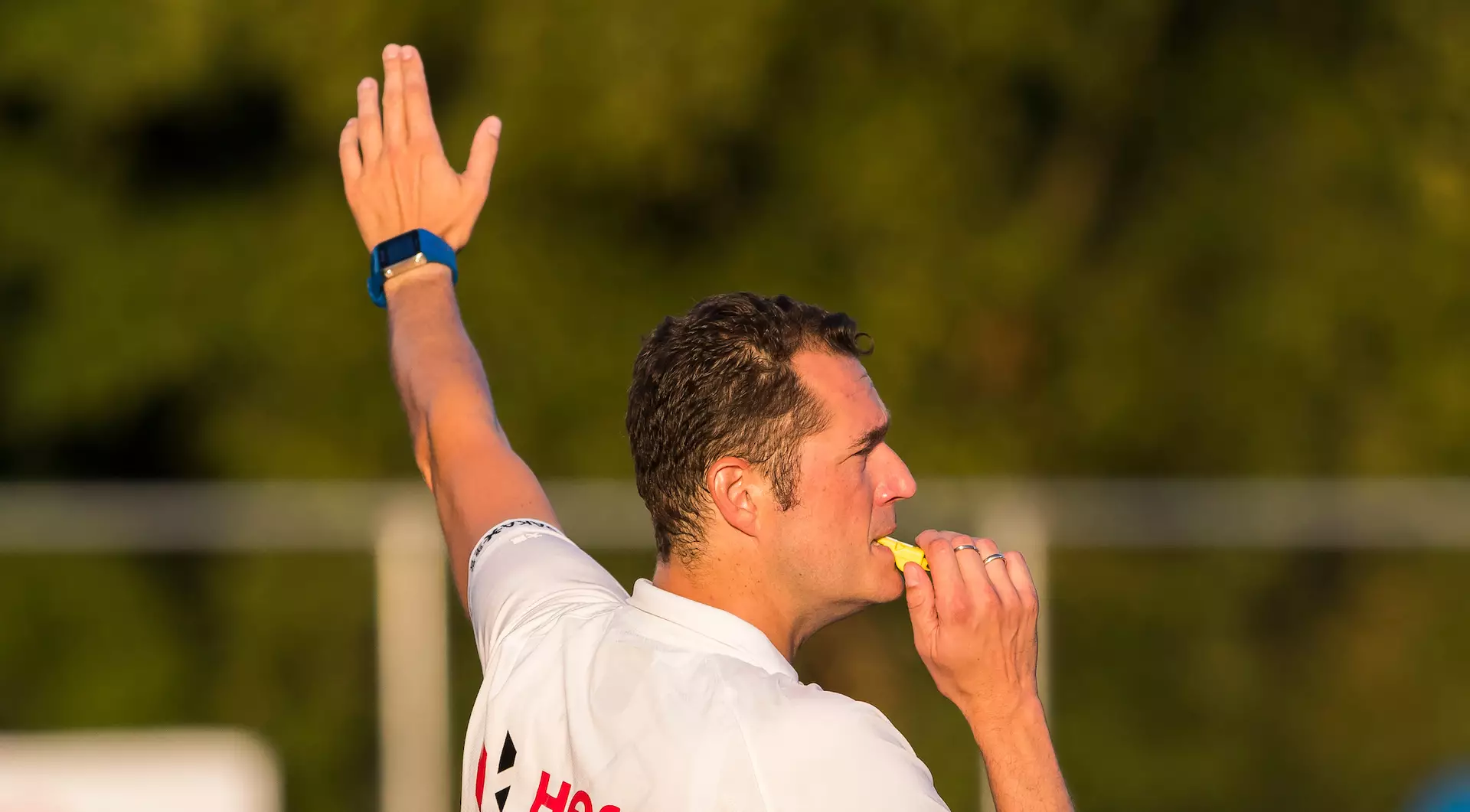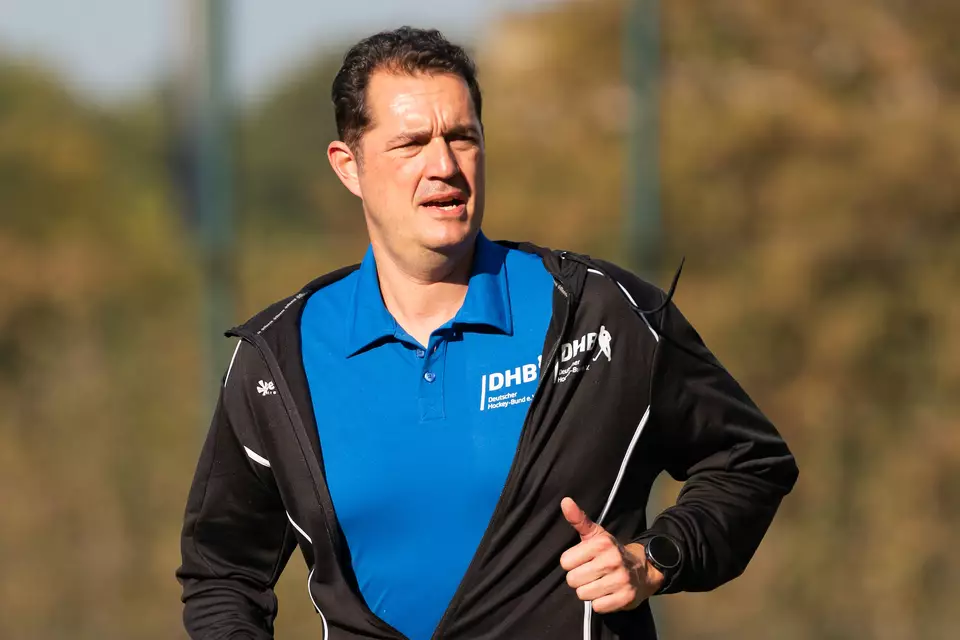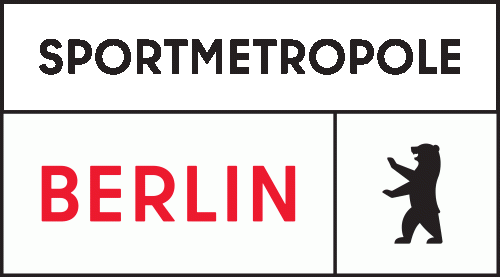
Referee
Christian Blasch - a refereeing legend bids farewell to the international stage
21. March 2023
He knows what it's like to stand on the turf at a home European Championships. Christian Blasch was already an FIH referee at the 2011 European Championship in Mönchengladbach. His career highlight was the Olympic final in Rio de Janeiro 2016, which he refereed. At the age of 48, the professional referee has to say goodbye to international business. In the European Championship interview, Christian Blasch says goodbye to the international stage and talks about his experiences at the European Championships at home.
Christian Blaschs internationale Turnierübersicht:
| Year | Tournament | Matches |
| 99 | 4 - NATIONS TOURNAMENT (WETTINGEN) | 4 |
| LÄNDERSPIELSERIE (AUS) | 6 | |
| 00 | 4 - NATIONS TOURNAMENT (BARCELONA) | 2 |
| 4 - NATIONS TOURNAMENT (HAMBURG) | 3 | |
| 01 | 11th SULTAN AZLAN SHA CUP (KL) | 5 |
| 02 | EUROPEAN NATIONS CUP QUALIFIER 2002 (DUBLIN) | 4 |
| CHAMPIONSTROPHY 2002 (COLOGNE) | 5 | |
| 03 | EUROPEAN NATIONS CUP 2003 (BARCELONA) | 6 |
| EUROPEAN NATIONS CUP 2003 (INDOOR/SANTANDER) | 5 | |
| 1st MEN'S INDOOR WORLD CUP | 6 | |
| 04 | OLYMPIC QUALIFIER 2004 (MADRID) | 6 |
| 4 - NATIONS TOURNAMENT (HAMBURG) | 3 | |
| 4 - NATIONS TOURNAMENT (DÜSSELDORF) | 3 | |
| OLYMPIC GAMES 2004 (ATHENS) | 5 | |
| 06 | WORLDCUP QUALIFIER CHANGZHOU 2006 | 7 |
| 4 - NATIONS TOURNAMENT (HAMBURG) | 3 | |
| WORLDCUP MONCHENGLADBACH 2006 | 7 | |
| 07 | 4 - NATIONS TOURNAMENT (HAMBURG) | 3 |
| EUROPEAN NATIONS CUP 2007 (MANCHESTER) | 4 | |
| 2st MEN'S INDOOR WORLD CUP | 6 | |
| 08 | CHAMPIONSTROPHY 2008 (ROTTERDAM) | 6 |
| OLYMPIC GAMES 2008 (BEIJING) | 7 | |
| 09 | 4 - NATIONS TOURNAMENT (HAMBURG) | 3 |
| EUROPEAN NATIONS CUP 2009 (AMSTERDAM) | 4 | |
| 10 | WORLDCUP DELHI 2010 | 6 |
| 11 | EUROPEAN NATIONS CUP 2011 (M'GLADBACH) | 4 |
| 12 | OLYMPIC QUALIFIER 2012 (DELHI) | 4 |
| OLYMPIC TEST EVENT 2012 (LONDON) | 2 | |
| 4 - NATIONS TOURNAMENT (DÜSSELDORF) | 3 | |
| OLYMPIC GAMES 2012 (LONDON) | 6 | |
| 13 | WORLDLEAGUE R3 (JOHOR BAHRU) | 5 |
| 14 | 4 - NATIONS TOURNAMENT (DÜSSELDORF) | 3 |
| WORLDCUP THE HAGUE 2014 | 5 | |
| 16 | 6 - NATIONS TOURNAMENT (VALENCIA) | 4 |
| OLYMPIC GAMES 2016 (RIO DE JANEIRO , inklusive Finale) | 7 | |
| 18 | CHAMPIONSTROPHY 2018 (BREDA) | 5 |
| 19 | HOCKEY PRO LEAGUE 2019 | 9 |
| OLYMPIC QUALIFIER 2019 (LONDON) | 5 | |
| 20 | HOCKEY PRO LEAGUE 2020 | 2 |
| 21 | HOCKEY PRO LEAGUE 2021 | 2 |
| 22 | HOCKEY PRO LEAGUE 2022 | 7 |

Christian Blasch, first of all, congratulations on a fantastic international hockey refereeing career. Why does it end now?
Thank you very much. There are FIH guidelines that say that when you reach the age of 47, your international refereeing career automatically ends. Even if you don't feel that old yet, the time has come.
You have had a great refereeing career. How would you describe it in three words?
After I received the letter from FIH, I naturally reviewed everything. All I can say is that it was an incredible trip. It was very exciting and I saw many places in the world that I would never have visited otherwise. I also made friends all over the world. Being a part of top hockey was also an incredible experience. I don't want to miss this time, it was an insanely beautiful journey that somehow also ended very quickly.
How did you get into hockey and whistling in the first place?
I come from Mülheim and my neighbours back then were the Tewes. It was through them that I came to Uhlenhorst Mülheim. I played there for a long time in the youth and became German youth champion four times. At some point during tournaments, the question arose as to who would be a whistle-blower. By chance, I simply whistled two games and then went to a youth course at short notice through the West German Hockey Association. From then on, I was actually caught in the positive sense. I was never a bad hockey player, but in the end I had more talent for whistling than for playing.
What period of time are we talking about between your first whistle and your first international match?
I whistled my first youth games when I was 16/17 and then moved into the Bundesliga relatively quickly in my early 20s. I also refereed my first international match at about the same age. Back then, we had the same problem as today, that there were few young referees and so I was able to referee Bundesliga and international matches very quickly.
When you have anything to do with hockey in Germany, you actually always hear that there is a lack of referees and a general problem. Do you agree with that?
Yes, definitely. I am also on the referees' committee and we are primarily only responsible for the German Hockey Federation. But we can also only train what the state associations make available. The problem is still that, in my opinion, there is a lack of awareness among the clubs that a referee is simply part of the game. Without a referee, there is no game. We are, in inverted commas, a dying breed and it is becoming difficult to referee all the games. At the moment, we are in exchange with the DHB and the hockey league because we have to beat the advertising drum again here. No one is queuing up to become a referee.
Back to your career: What is the difference between a Bundesliga matchday for a referee and a major international tournament, such as the EuroHockey Championships 2023 in Mönchengladbach?
The focus you have. In the Bundesliga, whistling quickly becomes a routine. You travel, referee and go home again. Internationally, you are together in the referee group, have breefings and preparations and sit together for one, two or three weeks, depending on the length of the tournament. You then try to perform as a group, because the referees come from all over the world and interpret things differently. At the tournaments, you try to adapt that through meetings, video analysis, etc. You really spend several days just working on the game. You really spend several days just on hockey. That is the biggest difference.
Is a home European Championship, which you experienced yourself in 2011, as special for a referee as it is for a player?
Yes, I think so. But I would also say that maybe it's a different pressure. When you host a tournament, the expectations in front of the home crowd are also higher. I was allowed to referee the 2006 World Cup and the 2011 European Championship in Mönchengladbach, and those were always great tournaments and a great stadium for such an event. It's always a question of the environment, whether you feel comfortable. That was always the case in Mönchengladbach.
In that sense, is it also important for the German refereeing image that Germany is finally hosting a major international tournament again since 2011?
I do believe that the perception will be different as a result. We will also have two German representatives at the 2023 European Championship at home. Every platform we get is important, also to promote whistling. In this respect, it is important that we are represented there again. It is not a matter of course that a participating nation is also represented by referees. In our case, we are lucky to have two.
Do you already have tickets for the EuroHockey Championships 2023 in Mönchengladbach?
I have already bought tickets for the final weekend. But depending on how things go at work, I'm sure I'll come during the week as well.
Tricky question: As a German referee at the European Championships: Are you happy if Germany doesn't make it to the final because then there's a chance you'll get to whistle it yourself?
That's really not easy to answer. Basically, of course, you are happy for the boys and girls you accompany in the Bundesliga when they reach the final and have the chance to win a title. But when you've been refereeing for a long time, you also want to referee a final. You have to say that quite clearly. For me, it was the final at the 2016 Olympic Games in Rio. In 2008 in Beijing and 2012 in London, the men won gold, so I was happy to be in a final in 2016. That was something special and when you've been around for so long, you're allowed to set yourself personal goals like that.
Then we come to our last question: After this long international career, what would you like to pass on to young aspiring referees?
My experience is simply that you remain part of the sport. We are talking about competitive sports here and the effort is high. You have to do something for your fitness regularly and the tournaments take up a lot of time. Being part of history at this top level has always excited me. When you are on the court and you can positively influence the games, that has always been the biggest motivation for me. The environment certainly gets tougher, but it's a school for life. I've had great experiences there. The development of dealing with challenges and tasks. Not everyone can become a national player, that's clear. There is only a very small elite that emerges over the years and someone who really wants to play hockey has an alternative through the whistle to somehow remain part of history. That was also the case with me.




























